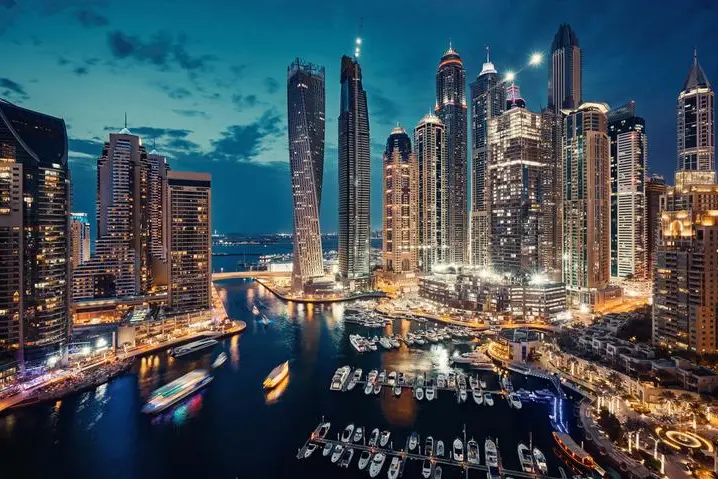PHOTO
Dubai Land Department (DLD) officials said on Monday that developers in the emirate would be required to use the new Mollak electronic system to invoice property service charges from 2020.
Service charges are periodic fees paid by the property owner for the maintenance of the communal areas.
Marwan bin Ghalita, CEO of Real Estate Regulatory Authority (RERA), the regulatory arm of DLD, said it would be mandatory for developers to use the new electronic system for invoicing service charges from the start of 2020.
Mollak was rolled out by RERA to implement the changes to property management under Law No 6 of 2019 on joint ownership of real estate in Dubai. The law comes into effect from 19 November.
“Previously all the [service charge] accounts were managed by developers and property management companies. Now these accounts would be set up as trust [escrow] accounts with banks,” Ghalita said at an DLD-organised event in Dubai.
“We will achieve what this law is meant for towards better service for the common areas and gaining trust of the investors in Dubai real estate market,” he noted.
Seven banks have been approved by RERA to operate these accounts, according to a DLD fact sheet presented at the event. The fact sheet also highlighted that the number of escrow bank accounts for general fund (for recurring expenses) and reserve fund (for capital expenditures) stood at 1,191 each, and to date, 54,000 invoices have been issued.
Service charges have always remained a source of friction between property owners and developers. Past media reports noted that owners have complained about the fees being opaque and developers profiting from the fees through excessive hikes. On the other hand, developers have expressed their inability to absorb rising maintenance costs and being saddled with non-paying owners.
The RERA chief explained that the Mollak system aims to resolve two key questions that have vexed property owners - where does the money [collected as service charge] go? Who approved the budget?”
Previously, he continued, the property owner or investor had no visibility into how or where the money was spent and had to be satisfied with a dirham-per-square-foot number. The Mollak system provides an itemised invoice that lists “every fil spent” against where it has been spent.
Additionally, he noted, a professional audit would precede any RERA approval of service charge.
“The new law has made it mandatory that before RERA approves any service charge, an approved auditor should audit the numbers,” he said, adding that the number of RERA-accredited financial auditors currently stands at 10.
Ghalita said the real estate sector is moving “towards more transparency and more governance in collecting and spending the service charge.”
He also underlined that the developer cycle of a project lasts a maximum three years from the time of initiating the design, but the property management or owner association cycle lasts more than 30 years.
“This is where business will be sustained, and the land department is making the most effort to make it a trustworthy system for all investors. By 2020, we will have ready buildings in Dubai in the Mollak system,” he noted.
To date, 89 real estate management companies have been registered under Mollak, according to the DLD fact sheet. It said the total amount of service fees audited in the Mollok system stands at 1.3 billion UAE dirhams ($354 million), and RERA expects to approve up to 4 billion dirhams ($1.1 billion) during ‘the next phase.’
Khalifa Al Suwaidi, CEO of Emirates Real Estate Solutions, which developed the Mollok system, said property owners would be able pay service charge electronically without needing to go to the owner association using the Dubai real estate wallet.
“We developed Mollak to spread transparency and provide accurate numbers for the owners to know details about the service charge. We would also like to utilise the tool to reduce costs for owners in areas like issue of No Objection Certificates (NOC) for property sales,” he said at the event.
He said the plan is to enable the generation of NOCs directly from the Registration Trustee (RT) offices to reduce the waiting period, which currently extends to several days or weeks.
Suwaidi also added that with data populated in one place, the rental dispute centre would be able to look at the cases when needed.
Last month, DLD had announced that Emaar Properties has integrated its Sakani residential community management portal with Mollak, becoming the first major real estate developer to link up with the new electronic system.
(Reporting by Anoop Menon; Editing by Mily Chakrabarty)
Our Standards: The Thomson Reuters Trust Principles
Disclaimer: This article is provided for informational purposes only. The content does not provide tax, legal or investment advice or opinion regarding the suitability, value or profitability of any particular security, portfolio or investment strategy. Read our full disclaimer policy here.





















